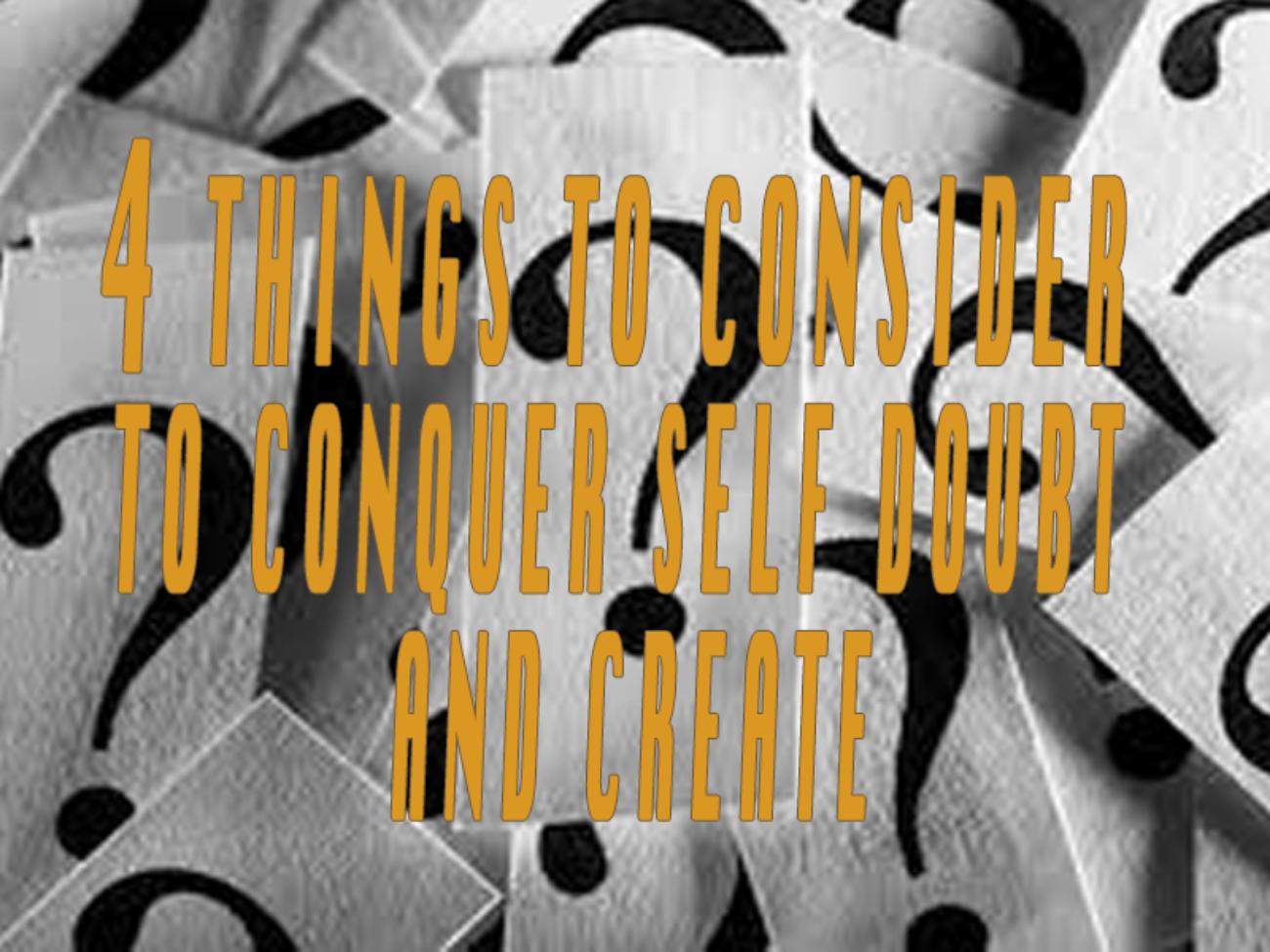Achickwitbeatz presents the Instrumental Intel podcast, bringing you information instrumental to your artistic career including music industry news & tips, insights & interviews, and beats for your inspiration. Listen on Saturdays at 7 pm EST on Grander Radio and Achickwitbeatz.com.
Follow on Facebook, Instagram, Twitter, YouTube Audiomack & SoundCloud, and subscribe on your favorite podcast platform. Download the Grander Media app to listen to Grander Radio on the go.
- Art
- Independent Labels
- Internet Radio
- Music Documentaries
- Album Reviews
- Music History
- Music Industry News
- Free Game Friday
- Free Downloads
- Poetry
- Books
- Interviews
- Did You See It?!
- Hip Hop History
- Hear Here
- Music News
- Hip Hop Documentaries
- Music Marvels Radio Show
- Think Piece Thursday
- Mini Documentaries
- Instrumental Intel
- Music Humor
- Indie Analysis
- Conversations & Quotables
- Music
- Resources for Artists
- Podcasts
- Beats/Instrumentals
- Music Education
00:00
Hey, thank you so much for tuning in to Instrumental Intel. I'm your host, music producer, Achickwitbeatz, and I'm glad that you're here with me today. I'm excited to be bringing this episode to you. Of course, there will be beats produced by me. I've got some music industry news for you, and later my special guest, Tha Orkastra, will be joining me to discuss orchestrating sound and a whole bunch more, so.
00:22
Of course, before we get started, for real, for real, I gotta give a shout out to my home station, Grander Radio out of Grand Rapids, Michigan. And with that, let's go.
11:10
Hey, this is music producer Achickwitbeatz, and you're listening to my podcast, Instrumental Intel.
14:13
[Song - ‘The News’ by Achickwitbeatz: “I'd like to begin with a fact. Whether in a small town like McAllen on the Rio Grande, or in Chicago, New York, or Los Angeles, it is business. Big business. 4-1-1, News!”]
14:40
Alright and as promised I'm back with your Music Biz Brief. TIDAL has rolled out new features that help artists track royalties and manage their songwriting credits.
14:55
So the service now offers a dashboard where artists can view their Pro and their IPI information, the track royalties, and verify that their recordings are correctly credited. Artists can also propose changes to royalty splits if needed. TIDAL has partnered with AllTrack for Digital Pro services and the Mechanical Licensing Collective, aka the MLC, to help artists get started.
15:17
So these free tools aim to simplify the complex process of royalty tracking, making it easier for indie artists to manage their earnings and credits. Alright, and Linkfire has integrated with Bandcamp, making it easier for artists to drive sales directly to their Bandcamp pages. So with this particular update, artists can include Bandcamp as a destination as a part of their Linkfire Smart Links.
15:39
just to make it easier for them to be able to click to purchase your music. So this is for people who subscribe to Link Fire. It is not a free service, but if you use it, this is definitely a great integration. Alright, and as usual, we've got some AI music news. The AI music startup Splash, known for its Roblox game Splash Skate and Music, has been certified by Fairly Trained, which ensures that its AI models are not trained on copyrighted content without permission. So Splash employs musicians to train these models.
16:09
during ethical practices and proper compensation for artists. So this certification comes as major labels are starting to issue or have been suing AI startups for using copyrighted music without consent.
16:21
Also in AI news, AI-generated quote-unquote bands are increasingly sneaking music covers on to Spotify, blending in with real artist covers to attract millions of streams and royalties. So these AI covers, which span genres from country classics to jazz, often have no digital footprint and they're raising concerns about their authenticity.
16:40
Reddit users first noticed the trend sparking discussions of streaming system exploitation. While Spotify pays royalties for both original songs and covers, original songwriters often receive lower payments compared to the producers of the covers. So as AI covers gain traction, the gap in earnings between songwriters and cover producers is becoming more pronounced. Alright, NetEase Cloud Music saw a 4.1% revenue increase in the first half of 2024 reaching
17:09
$580.3 million. So despite its decline in the social entertainment segment, their online platform is focusing on discovery features and social interaction while introducing its AI tools aimed at independent artists. Also, SeatGeek's new Parties feature lets ticket holders invite a group to events while keeping control of all the tickets. So it's inspired by apps like Airbnb, the tool enhances group ticketing by allowing the host to reassign tickets if needed.
17:39
The feature, driven by the rise in mobile ticketing post-pandemic, also helps venues be able to gain better insights to attendance and improve fan experiences. And speaking of parties, Amazon Music has launched Amazon Music Listening Party on Discord, which lets users listen to music and podcasts together. So this new feature replaces earlier music bots like Groovy and Rhythm, which shut down in 2021 due to policy issues.
18:04
It does require an Amazon Music Unlimited subscription, but new users can try it for free. This move taps into Discord's 200 million monthly users and competitive social listening space where Rhythm has also re-emerged with a subscription model. And just in case you weren't aware, Instagram now allows its users to add a song to their profile similar to MySpace's old feature.
18:26
The song appears in the bio area and it can be played or paused by visitors. Users can select a 30-second clip from Instagram's licensed music library through the edit profile page. This feature is part of Instagram's push to enhance user profiles with music. Alright, finally today's cautionary tale. Shaboozey, known for co-writing tracks on Beyonce's album and for his hit “A Bar Song (Tipsy)”, is suing Warner Chappell.
18:52
He alleges that the publisher is obstructing his attempt to exit an administration deal by not disclosing the remaining unrecouped advances. Additionally, Shaboozey's former label Crescendo Entertainment is suing him for $2 million, claiming he's trying to cut them out of his publishing rights. Shaboozey also accuses Kreshendo of unauthorized releases of his music after his contract ended.
19:14
So, word to the wise, always be careful with what you sign. Obviously, his career began doing very, very well and he wants out, understandably so. But yeah, sometimes it's just not that easy so make sure that you have some legal advice before signing anything so you don't end up in this type of situation. Alright, and that's a wrap for the Music Biz Brief.
19:36
I'm gonna take a quick pause for the cause and then I'll be back with my special guest right after this.
31:15
Hey, this is music producer Achickwitbeatz, and you're listening to my podcast, Instrumental Intel.
37:36
Hey, I'm Achickwitbeatz, multi-genre music producer and strategist to indie artists and labels. Visit achickwitbeatz.com for resources for artists and instrumentals in various genres available for songs, blogs, blogs, podcasts, themes, TV, film, commercials, and more. Once again, that's achickwitbeatz.com. That's A-C-H-I-C-K-W-I-T-B-E-A-T-Z.com
38:04
Let's make something happen. Thank you so much for joining me for Instrumental Intel. I am your host, music producer, Achickwitbeatz. And I'm excited to say that I have in the virtual building with me today, a man of many talents and also many names. But the one we're gonna call him today is Tha Orkastra. How are you feeling? I'm good. Good, glad to be here. Glad to be invited to the conversation. Yeah, so if you could maybe give people a little bit of background and to...
38:33
some of the stuff that you do music related and how you got started in music to begin with.
38:40
And that's kind of the story. Let's see. Really, I've always enjoyed Hip Hop music, especially the percussion of Hip Hop music. Like when I was a kid, I always wanted to be a drummer, but my mom would let me be a drummer, so. So I couldn't be a drummer. But when I got to undergrad at Michigan State,
39:10
One of my classmates who was in the travel program with me, his younger brother was producing music. So I just basically kind of took it up on myself to figure it out with him. But he really didn't give me any training at all, to be honest. His mantra was like, if you're going to be dope.
39:36
then I shouldn't have to tell you. I should have to tell you. Like, if you go to the suite, then you go to the suite. Yeah. So basically, he showed me what a quarter measure was and what a note was. And that was pretty much it. Showed me kind of the basics of how to go through with instrumentation and write this and that. But it was up to me to figure out
40:05
where to put the notes, where to put the rests, and all that. So that's what I did. That's how I got started, basically. I just sat and basically taught myself how to figure it out. And he really was unconvinced, honestly, that I was gonna be any good. So we would constantly, we would have these beat battles where,
40:29
He would write verses like instrumentation, and then I would write the drums. And he would also write his own. So it would be like basically like his drums versus mine in the same song. And we would play it for our suitemates, our roommates. You could see like, drums came out on top. Like it was better basically, like a Coke taste test. So I'll consistently be better than him.
40:59
So that's the only reason he started taking me seriously. Because he had to. Because people say my drums are better. So that's how I ended up writing music, basically. I just started writing drums and from there, I started writing both songs.
41:20
I'm doing everything honestly. So I guess Hip Hop music would be especially for people that really enjoy writing for everything. It really isn't anything I don't like writing for. I guess I've never really sat down and tried to write a country song, but I don't think that it's impossible. I just find it like interesting just to put different sounds together and maybe making things that people aren't expecting. Okay.
41:50
Basically, you sat down, you had a point to prove, you proved it and just kept proving it. Right, yeah, yeah. So then, you know, basically we would just have straight up beat valves where, you know, like...
42:05
I would write something and we would designate what instruments to use. So I would tell him like horns, strings, oboe, and electric guitar or whatever. Yeah. And so you would have to use those instruments to create something. And then like...
42:25
Again, just send it out to people, all right, what song is better? This one or this one? Okay. So yeah, you mentioned that you don't have any problems venturing into the, or I should say out of the norm, if you will. And so I know countries kind of doing this little thing where it's getting a little more mainstream and whatnot. So is that something you can see yourself probably trying in the near future?
42:51
Yeah, I think so. I think definitely this is kind of coming back to Black. You know, like it started out with Black people kind of coming back to Black people now. Yeah. With a lot of the pop music that's out right now. So I definitely think that it's a time where you could experiment with more of those sounds from country music and integrate them into even other styles and genres. And people will probably connect with it because...
43:21
It's more like people are just getting used to the sounds and the ears and sounds and more of those sounds because they're not used to it. Yeah. If you're not used to listening to that type of music. Yeah. So I guess when you decide to try something that's kind of out of, you know, the usual or something different from Hip Hop, are you able to stick to it? Cause I know like for myself personally, I might sit down and say, okay, I'm about to make a, you know, pop song.
43:47
But then somehow for me, it just turns into something else. So how do you make sure that you stick with what you set out to do when you, uh, I guess, start a beat to begin with? Well, I guess it's not, um, like when I'm, I think me getting direction actually really helps me focus a lot, which is why I prefer to like work with artists directly on projects because they give you their visions, you know what I mean? And then you can kind of.
44:15
fill it out and make it more vibrant. So like if I have someone saying okay I want a country sounding song blah blah blah and so then I can go in and say okay so what's that type of sound this type of sound and we go over some songs and make some other songs and songs what type of sound that you're really interested in and then that really focus like what I'm gonna do and I'll be very excited to do that part.
44:45
and really mess with it. So it's not, I don't find it hard at all to focus and stick to my plan. But I know what you mean though, that sometimes you may be in there and you may hear a couple sounds that you weren't counting on and then it kind of goes off and goes sideways. But when I'm working with somebody that rarely happens, but when it's kind of free-falling, we're just making something.
45:14
You know, like then of course it could happen. You know, like you may be sitting there and you may be trying to make something kind of gangster and then all of a sudden it's kind of an R&B song. Just because like.
45:27
Maybe someone heard something on the drums, want to slow it down, whatever, and then it kind of turns into something different. Yeah. Yeah, okay. So, you know, you mentioned that you had an affection for Hip Hop to begin with. Who were some of your early musical influences, even if it's outside of Hip Hop, but like, as a kid, who were some of the people that just kind of grabbed your attention first?
45:50
I mean, I guess like listening to music when I was younger, it was a lot of like Motown, because I'm from Detroit, so it was a lot of like OJays and Anita Baker and Temptations and Al Green, all that kind of stuff. Real soulful type music, which I learned to love.
46:19
But I was, like I said, I was always into the percussion. So like when I would get drum solos and stuff like that, like that's what really would drive me to like wanna listen more. So when Hip Hop music became popular, like in the 80s, like I could remember like Will Smith's Summer Time and MWA, 100 Miles of Running and all that.
46:49
and two short freaking tails. And what, just a lot of different stuff that you were here, you know, like, wow, like where did that come from? Even like Pete Rock and...
47:06
Why am I missing this name? It's such a... We were just talking about this group. It's another name we hear. Yeah, yeah. Oh.
47:18
I know you mentioned like 2Live crew. Some of the people, you know, were probably too young to be listening to at the time. Oh my gosh, yes. I'll go look at 2Live. I love that. There's so much energy. Yeah. You know, never heard that type of bass before. That issue. I used to love watching them. And then there was, there's a lot of West Coast stuff too.
47:46
like that Dr Dre, that Let Me Ride. Yeah, yeah. I just love that song. When I heard that, it was just nothing like, you know, like the way that those keys were put together and it was just so unique. Yeah. Yeah, there was just a lot of, pretty much anything that had a great beat to it. That's what I was into. Okay. That first Eric Bacchus album, when I was a little bit older, that was.
48:14
were super different the way that the R&B was based on the kind of a lot of hip-hop beats. Yeah, yeah. I feel like there was a lot of fusion back then, but I guess technically there still is today, but I still feel like there's a little more crossover, but at the time...
48:36
Sometimes the R&B songs felt more Hip Hop. Sometimes the Hip Hop songs felt a little more R&B, but like you could still tell there was a difference, but they still blended together so well, a little bit more than I'd say today, but. Yeah, I feel like today, man, there's just a lot of content and you really have to weed through it to find good stuff. And I still put together mixtapes, so.
49:04
actually in the process of doing right now and that is the key right now like I made download I made download 350 songs you know and go through and sift through this and all of them more than once you know just sift it through stay in my wood actually works and then kind of mentally kind of putting them where they would go and mix you know but you have to go through so many songs like find like
49:33
So out of the 350, I may end up with like a hundred, you know, like that, that are actually going to actually make the mix, you know, that fit, that work, that people enjoy, you know, not just feel it. Like you're trying to really get your own songs and try to put them together to where it makes sense to the listener. So, but yeah, right now there's just a lot of stuff, you know, and you may have, you may have like a great song here.
50:00
great song there, this song here, this song there, and then, you know, all around it, and you heard a terrible song. Yeah, for sure. And I was just reading an article recently that was talking about Spotify and basically how they're kind of conditioning people to just kind of sit back for more of the passive listening, like making it a little bit harder to find like specific songs, and that eventually that that could just change the way people consume music altogether. What do you think about that?
50:32
Yeah, I think that would be a travesty really because not everybody can do music. I think that it's so accessible right now. If people think they can do it, they really shouldn't be doing it. Because I'm not trying to shame anybody, but I'm just saying that not everybody can write good music. And not everybody can sing, and not everybody can...
51:00
Can rap, you know, so.
51:02
It really is an art that you have to work hard at. And in order to perfect it, even if you have talent, you still have to refine the talent and get to a place where it's usable and people understand and feel where you're coming from. There's really a feeling and it's really part of the soul. So when you're just doing it just to get some money or because you think this is the easiest way to get to where you wanna go, like that's not why people make music. Right.
51:32
When you listen to some of these old jams, like those people weren't just trying to make millions of dollars. They were trying to make a few million of something. Yeah. And so you have to get music that has feeling. That's where, that's really where real artists go, to the field. I want this to feel a certain way. It's art. And so when you're talking about how...
51:59
people consume over Spotify, really they aren't giving the art a chance to breathe. You know, like sometimes you can't, you have to look at something like, you have to use the art alone. And they impress you a certain way, but then you come back and you look at it in a different light, maybe it's.
52:16
you know, at dawn or at dusk, and it looks a little bit different. You say, I kind of miss this, I miss that. It takes time to consume it properly. So you can't just listen and skip through every song and say, oh, well, this is garbage. Or this is great. You have to kind of let it breathe a little bit, like open the bottle of red wine. You have to let it breathe a little bit. It's going to taste different over time. It's a better breathe. So you have to give.
52:44
Especially when you know that it's a quality art. You know, like, you have to let it breathe a little bit, like, okay. You know, see, this is life. You're gonna take this in, and then think about it, come back. And maybe we'll listen to it in a different setting to see how we feel about it. You know, like...
53:02
That's how music was meant to be taken in by things like, you don't just skip through, skip through, skip through. It was okay, I guess. Right. Right. As a matter of fact, just had this conversation with your cousin Sandstorm when we were at your place, actually, because it was a particular artist that I didn't necessarily dislike, but I wasn't really running to listen to her music.
53:28
However, on the way, like on the highway, all of a sudden it felt different from sitting at my laptop, you know, trying to, you know, mix stuff and then maybe taking a little break to listen to music. It hit a lot different on the highway. It kind of got me hyped up and revved up. So you brought up a very valid point. A lot of times it depends on your mindset, the situation, and it can feel totally different. Right. It really.
53:53
I think the car is a great place to listen to music. Especially if you're trying to hear something for the first, second, third time because you can actually focus on it pretty well. We're kind of adapted to listening to music in the car. And a lot of times you're in there by yourself so you can listen to a lot of people you want to. You can have windows down if you want to. You know what I mean? You can really kind of get in the zone to just listen to it and pay attention to the music.
54:23
Yeah. So you can get a good feel for how that's gonna feel. And like people will listen to certain things, of course, like when they're getting ready to go out or getting ready to go to the gym or getting ready to go to school or work. So it's like, you know, okay, well, I know I'm gonna get hype on this. I'm gonna put this on. It's gonna get me in the mood. And you had it. Just jump in the car. So the car is a great place. I car test everything. I like mix tape. I car test everything.
54:53
festival thing before I put it out. Any beats like on car test to beat before it's done, it has to work in the car. It has to. If it doesn't work in the car, you have to go back to your fix that. Yeah, yeah. Cause as a matter of fact, I was doing some social listening online and people were talking about how some of these songs that are out now seem to be catering more to like your AirPods or whatever, cause they think that that's how people are consuming it,
55:23
feeling that you get when you listen to it in the car. So again, I think you raise another very valid point. Because yeah, I mean, like you said, that's really the best place to just kind of absorb it and actually like feel it. Right. I mean, like here, you know, at my house for sure, we have a great sound system because we do music. So you'll be able to put it on and turn it up here. But I don't know how many people are really used to it now.
55:51
It may just be, like you said, like headphones and AirPods, but I feel like if you write the song, you level it correctly for the car, it's gonna sound great in any case. Exactly. It sounds good in the car, it's gonna sound great everywhere. Yeah. You don't even have to worry about it. But I think a lot of times we're going for big sound too, you know, like, and I don't know like how many.
56:16
producers are really trying to go for like a quiet, quiet sound. Which would, I guess, lend itself more to like AirPods. When I'm thinking music, you want some sound, you want some depth. You know, you want to fill that thing up. So that you really need some speakers for. AirPods and headphones, like they'll work.
56:43
But you really want hearing these speakers. Yeah, absolutely. So all right, you know, time's kind of running low a little bit, and I want to make sure that people get to know where they can follow you and keep up with you. We'll let you get going on, hit you up if they want beats or mix tape or whatever it is. Where can they follow you? Where can they follow me? I guess they could probably follow me on Instagram.
57:13
Um, they got Tha Orkastra on this, they might have to check. Look. Let me look. I don't think they went.
57:24
Yeah, and also since most of the audience listening are artists in some way, shape, form, or fashion, any advice you have to anybody that's basically trying to navigate the industry right now, maybe you know they're feeling a little discouraged because it seems like not necessarily true art is kind of being honored. Like you said, people just kind of want to breeze through stuff quickly. Any advice you have to offer for them to push through that?
57:55
Yeah, I think that it's important that everybody had their own style because it's only one you. So you have to develop your own style. Don't just copy somebody else and put your own standpoint. Like develop what you do. You know, like go in there and figure out like what moves you.
58:14
and make your own arrangements. Like, I do it this way because this is what I like. I put it this way because this and that and there. Not just because Swish Beats did it, Temple did it, We Kicked the Mirror did it. You know, like, figure out what it is that you like to do. You know, like, every...
58:34
real big producer, you can tell like who it is. You know, like, you listen to it, like you can say, oh, okay, that's Kanye. Okay, that's in the keys. You know what I mean? Like you, oh, that's high-tech. You know, you know who it is just based on the sound. Yeah. You know, so you have to develop your own sound so that people understand who you are. That's wisdom right there. All right, did you find your socials?
59:01
Oh, yeah, yeah, it's Tha Orkastra. THA underscore ORKASTRA on Instagram. All right, perfect. Well, I want to thank you for taking time out of your busy schedule. And I feel like we only scratched the surface. So I hope this is just part one and I get to have you back soon for part two. Yeah, that'd be fun. All right. Thank you so much.
59:28
No problem. Thank you. All right. That does it for this week's episode of Instrumental Intel. Once again, I thank you for tuning in. I definitely appreciate the support.
59:38
I also thank my special guest, Tha Orkastra, for joining and sharing his experience, wisdom, and insight. And of course, I thank my home station, Grander Radio, out of Grand Rapids, Michigan. And so, yeah, I'm also excited to bring next week's episode to you. Got more goodness lined up. So make sure that you come back. All right, till next time, you know where to find me. Tune in, tell a friend. I'll see you then.
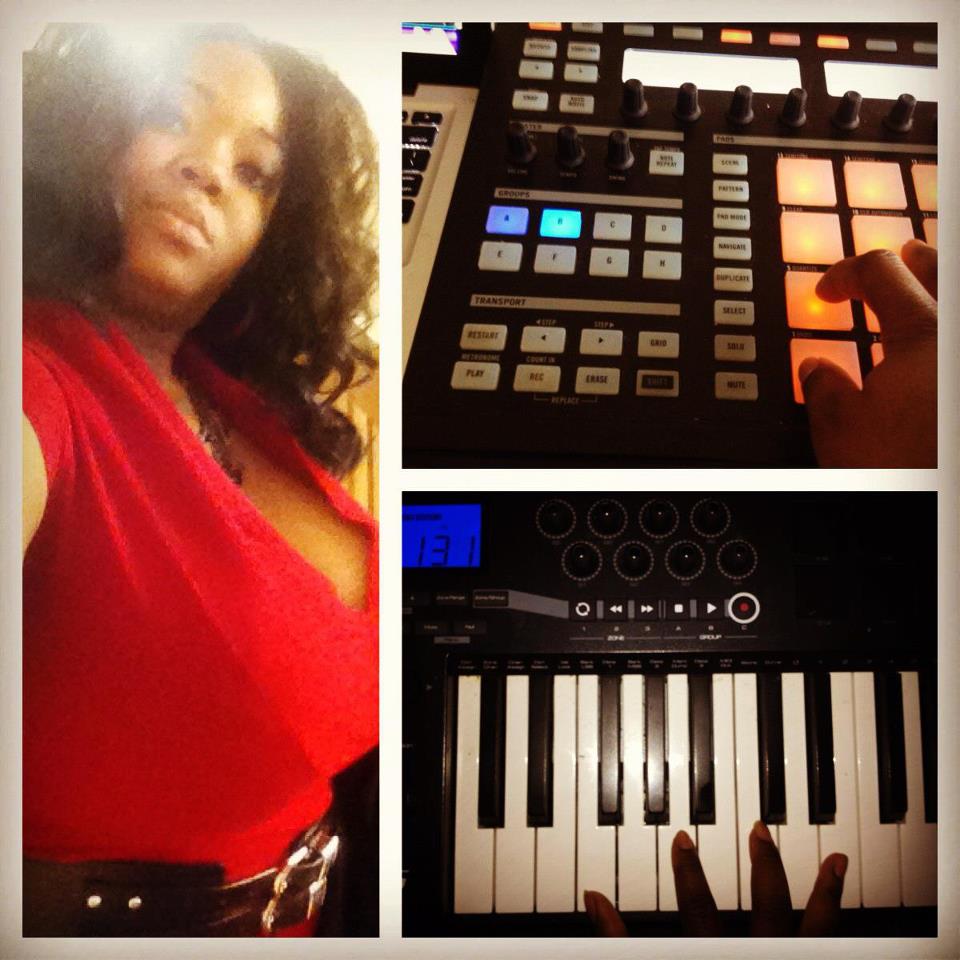
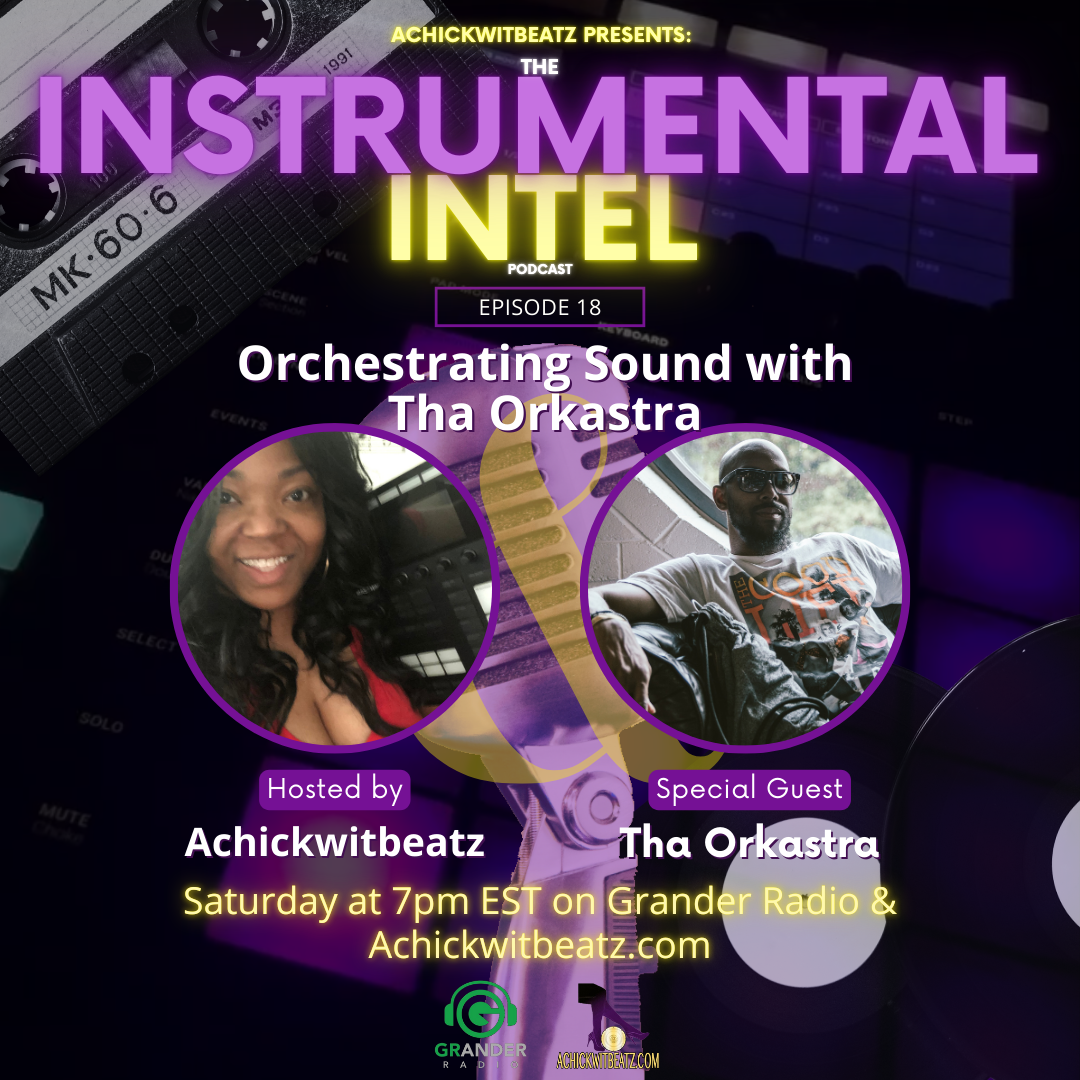






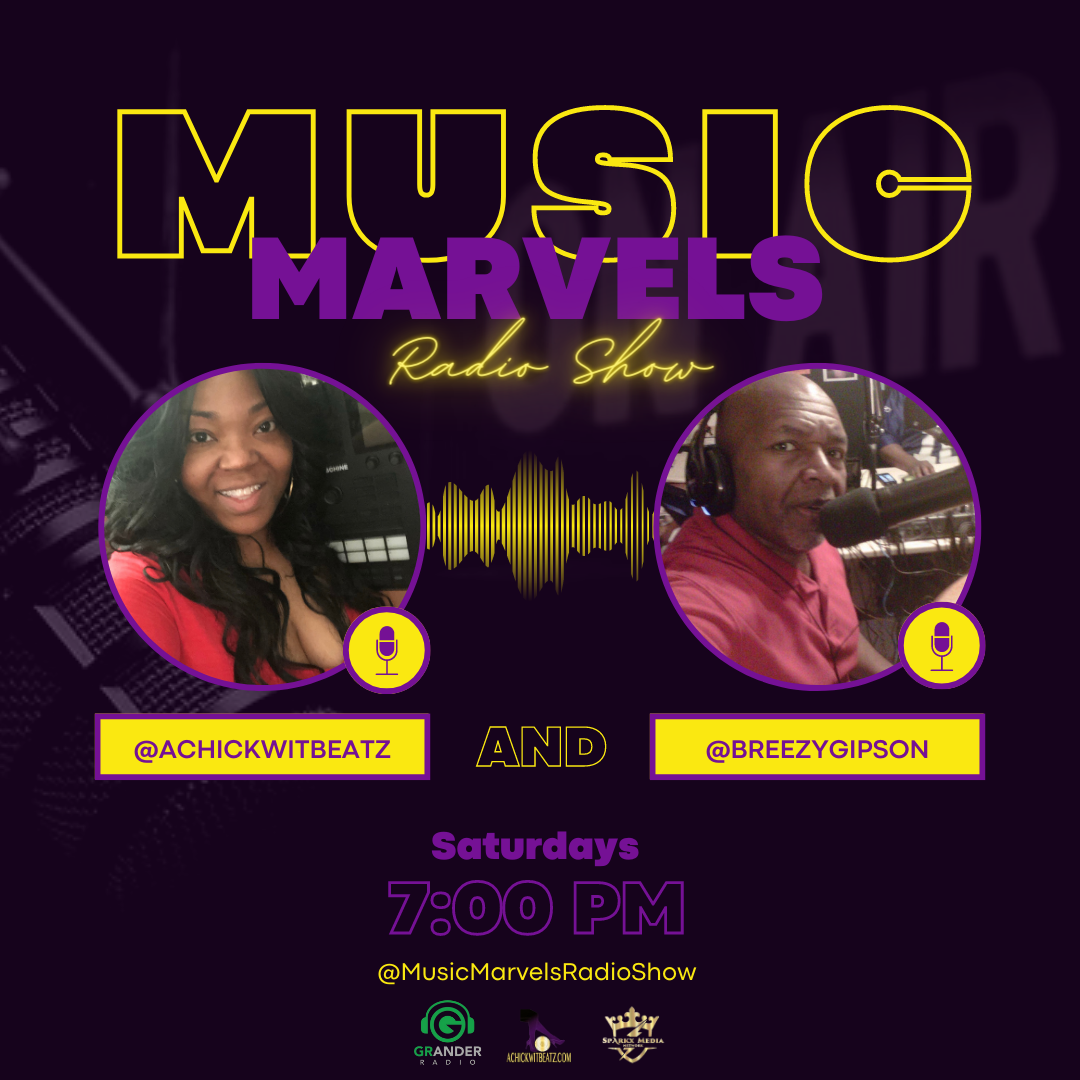
![Hear Here: Achickwitbeatz - Dopamine & Serotonin [Single]](https://images.squarespace-cdn.com/content/v1/52b0b90ae4b0293bfed0d692/1710852808557-EZYGFDIBHLBSIRFOVS1Q/Dopamine+%26+Serotonin.JPG)


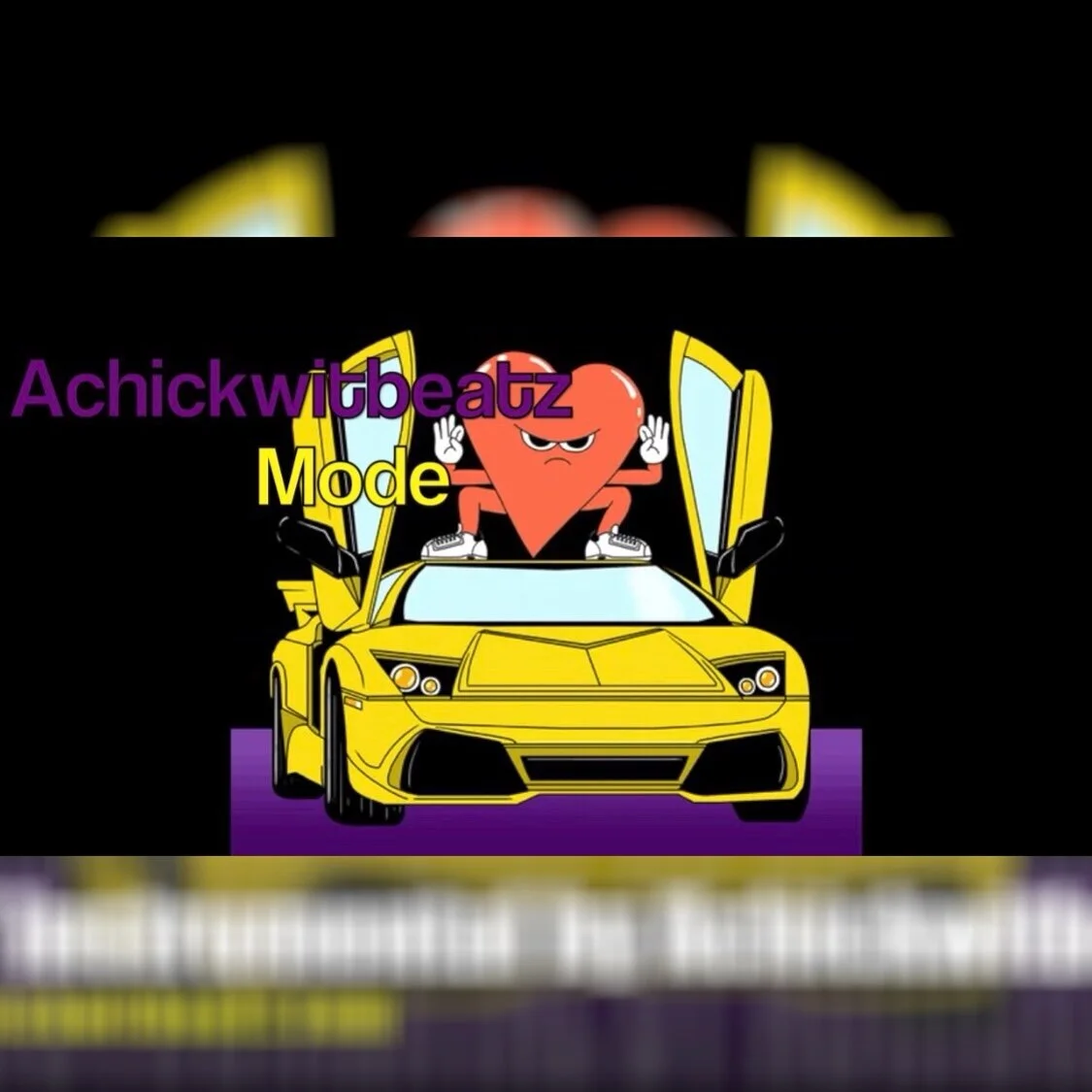
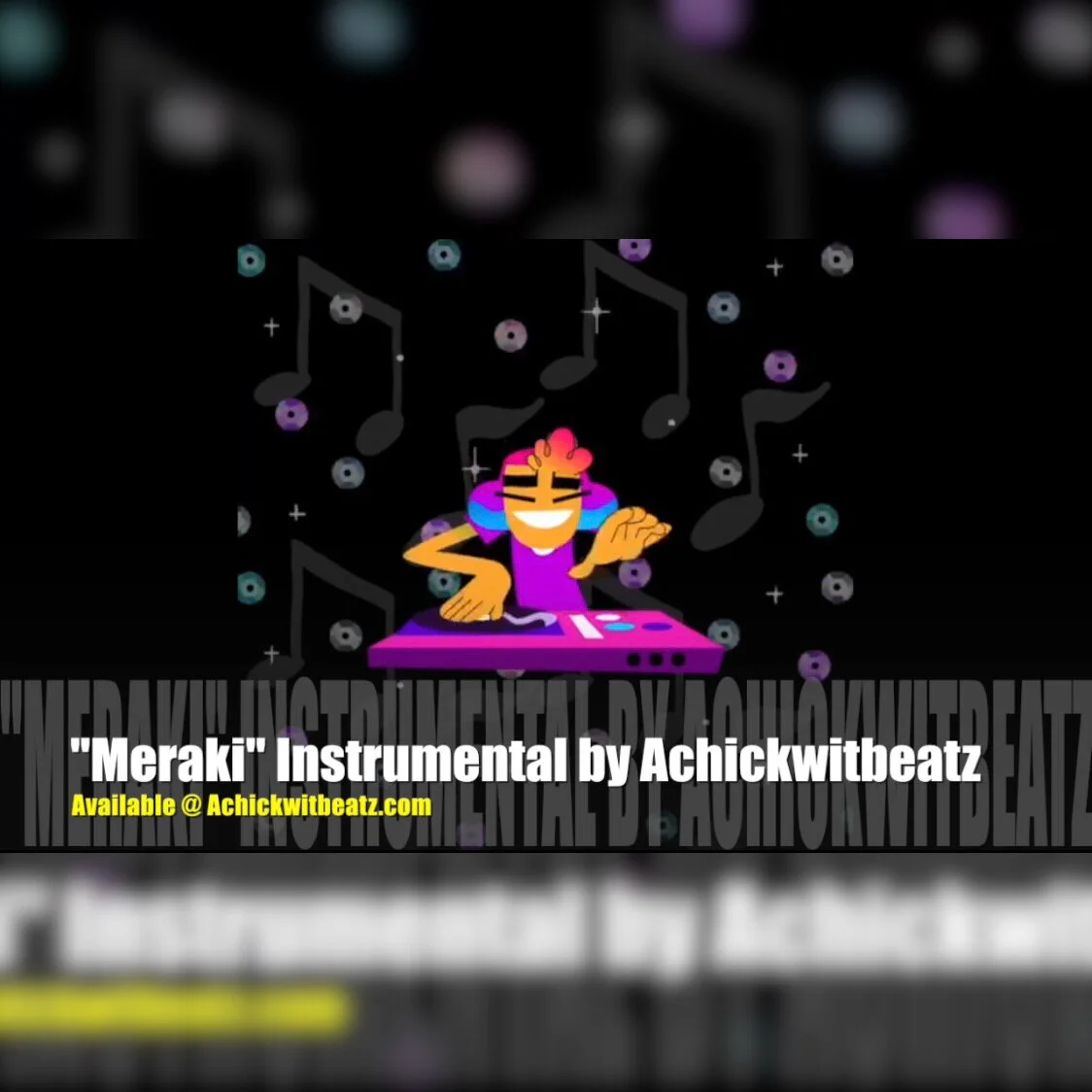





![Hear Here: Dagga Man- "Analytics" [Prod. by Achickwitbeatz]](https://images.squarespace-cdn.com/content/v1/52b0b90ae4b0293bfed0d692/1584638158548-9R55AZLWZIDFJC8LATV6/IMG_2212.JPG)







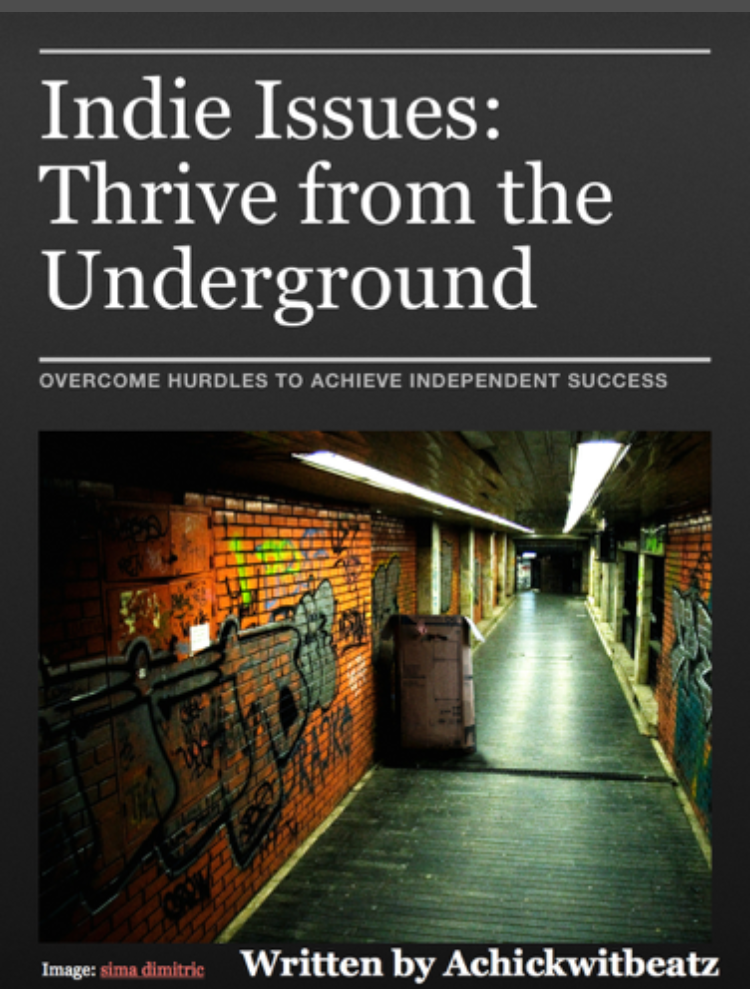
















![Making Music on a Budget [Infographic]](https://images.squarespace-cdn.com/content/v1/52b0b90ae4b0293bfed0d692/1582844361438-3JTE5NT3EL51FHXC0WJI/making-music-on_1929722%25281%2529.jpg)
